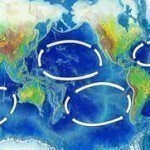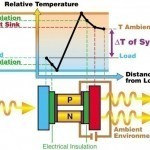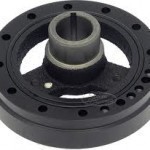Swarm intelligence is the term used to denote artificial intelligence systems where collective behavior of simple agents causes coherent solutions or patterns to emerge. This has applications in swarm robotics. A population of unsophisticated agents interacting with their environments and each other makes up a swarm intelligence system. Because there is no set of global instructions on how these units act, the collective interactions of all the agents within the system often leads into some sort of collective behavior or intelligence. This type of artificial intelligence is used to explore Read More
Potassium Alum
Potassium alum is also known as potash alum, tawas, and alum (its common name). The specific compound is the hydrated potassium aluminum sulfate and it is commonly found in deodorant, aftershave treatments, fireproof textiles, baking powder, and used in leather tanning and water purification. It is soluble and liquefies when heated. Potassium alum is colorless in crystal form and is completely translucent when 100% pure, making it popular amongst those who collect minerals in the wild. Potassium Alum’s Characteristics Potassium alum is very soluble in water and becomes a porous, Read More
Adhesive Removers

An adhesive remover is a chemical that can break the chemical bonds of adhesives. There is a wide variety of adhesive removers because there are many different types of adhesives. Each adhesive on the market has a slightly different formula/chemical structure. Therefore, an adhesive remover must be specifically formulated to break down each adhesive. Adhesive removers can either be toxic or nontoxic and can range in texture depending on the type of adhesive it was made to remove. Toxic Adhesive Removers Solvent-based Solvent-based adhesive removers are the most toxic but Read More
US Virtual Fence Proposal
The Virtual Fence proposal is a project funded by the United States aimed at curbing the number of illegal immigrants and smugglers entering into the United States through the Canada and Mexico borders. This plan is part of the Secure Border Initiative which aims to enhance the effectiveness of the physical fencing already present in these borders. Components of the Virtual Fence Components of the Virtual Fence project includes border control vehicles equipped with state of the art computers, unmanned aerial vehicles, high powered cameras, including infrared cameras capable of Read More
How Do Ocean Currents Affect Climate?

Ocean currents are one of the main factors that affect climate. Other factors are proximity from the equator, distance from the sea, direction of prevailing winds and relief (mountains). But, for the most part, ocean currents act as one of the most important factors that influence the climate. And the reason why is because a current is water that travels. With that traveling water comes heat. The best example of a current is the Gulf Stream. This is a current of water that originates in the Gulf of Mexico and Read More
The Peltier Effect

The Peltier effect is one of the three separately identified effects to which “Thermoelectric Effect” or simply, “Thermoelectricity” refers. The other two are the Seebeck and Thomson effects. Discovery This effect is named after French physicist Jean-Charles Peltier, who discovered it in 1834. Peltier found that the junctions of dissimilar metals were heated or cooled depending on the direction of electric current flow through them. The heat that the flow of current in one direction generated was absorbed if the direction of current was reversed. Peltier inadvertently discovered this while Read More
Superfluidity
Superfluidity is the phase in which a fluid exhibits frictionless flow. The fluid’s viscosity vanishes and the thermal conductivity becomes infinite during this phase. This is possible because some liquids overcome friction when interacting with surfaces when the fluid’s viscosity is zero. Zero viscosity makes it possible for a fluid to have a very unique motion, which is yet to be fully understood or exploited. Properties of Superfluids Superfluidity allows matter to be in a state where a two fluid model can exist. This means that mass can be transferred Read More
Earth Cooling Tubes
Earth cooling tubes present an alternative for controlling temperature within residential and office buildings as well as greenhouses and other structures requiring temperature regulation. These tubes run underground and alter air’s cooling or heating temperature before it is allowed into a home or office. En route, the air releases its heat to the surrounding soil so it becomes cool air when it reaches its target structure. If the soil surrounding the tubes is warmer than the air within, the air acquires heat so it becomes warm air when it reaches Read More
Harmonic Balancer

A harmonic balancer is a device that is connected to an engine’s crankshaft in order to reduce any vibration’s negative impact on the crankshaft and to dissipate the energy that shaft rotation creates. Since the device is the engine compartment’s first element that is connected to the shaft, it absorbs the majority of the energy generated during engine use. By absorbing this energy, only the harmonic balancer (instead of more vital engine components) fails, thereby preventing catastrophic engine failure. How does the Harmonic Balancer Work? The harmonic balancer is made Read More
Reinforced Plastics
Reinforced plastics are a special breed of plastic. They're used for the production of tough and durable materials for heavy-duty applications like building construction. These materials are very useful in building structures and styles that conventional materials such as lumber, steel, concrete and other similar materials are incapable of satisfactorily or reliably producing. Reinforced plastics (also called Fiber Reinforced Plastics or FRP) have great potential. They can be generally used to replace conventional construction materials due to their toughness and good resistance to corrosion and wear. Furthermore, they could be Read More


Share on: